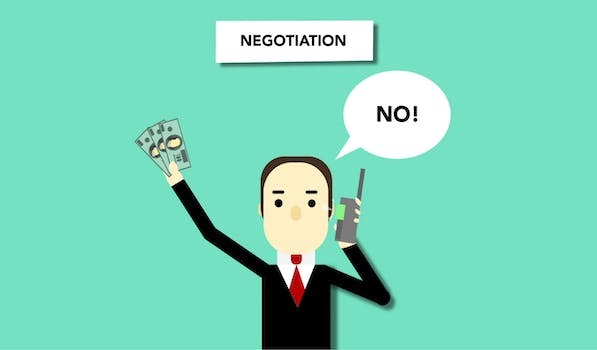How To Start A Business When You Have No Money
“Turning passion into profit without breaking the bank.”
Introduction
Starting a business can be a daunting task, especially when you have limited financial resources. However, lack of money should not deter you from pursuing your entrepreneurial dreams. With the right mindset, strategy, and approach, you can start a successful business even with no money. In this article, we will explore some practical tips on how to start a business when you have no money.
Bootstrapping Your Business: Tips and Tricks
Starting a business can be a daunting task, especially when you have no money. However, it is not impossible. With the right mindset and approach, you can bootstrap your business and turn it into a successful venture. Here are some tips and tricks to help you get started.
1. Start with a solid business plan
Before you start your business, you need to have a solid plan in place. This includes defining your target market, identifying your competition, and outlining your marketing strategy. A business plan will help you stay focused and on track, and it will also help you secure funding if you need it in the future.
2. Use your skills and resources
When you have no money, you need to be resourceful. Look at your skills and resources and see how you can use them to start your business. For example, if you are a graphic designer, you can start a design business from home. If you have a spare room, you can rent it out on Airbnb. Use what you have to get started.
3. Start small
Starting small is key when you have no money. Don’t try to launch a big, expensive business right away. Instead, start with a small, low-cost venture that you can grow over time. This could be a side hustle or a part-time business that you work on in your spare time.
4. Focus on revenue
When you have no money, revenue is king. Focus on generating revenue from day one. This means finding customers and selling your products or services. Don’t worry about making a profit right away. Your goal should be to generate enough revenue to cover your expenses and reinvest in your business.
5. Build a network
Networking is essential when you have no money. You need to build relationships with other entrepreneurs, potential customers, and investors. Attend networking events, join online communities, and reach out to people in your industry. Building a network will help you find new opportunities and grow your business.
6. Be frugal
When you have no money, you need to be frugal. This means cutting costs wherever possible. Look for ways to save money on expenses like rent, utilities, and supplies. Use free tools and resources whenever possible. And don’t be afraid to negotiate with suppliers and vendors to get the best deals.
7. Embrace social media
Social media is a powerful tool for bootstrapping your business. It is a low-cost way to reach potential customers and build your brand. Use social media platforms like Facebook, Twitter, and Instagram to promote your business, engage with customers, and build your following.
8. Be patient
Starting a business when you have no money takes time and patience. You won’t see overnight success, and you may face setbacks along the way. But if you stay focused and committed, you can build a successful business over time. Remember that Rome wasn’t built in a day, and neither is a successful business.
In conclusion, starting a business when you have no money is challenging, but it is not impossible. With the right mindset and approach, you can bootstrap your business and turn it into a successful venture. Start with a solid business plan, use your skills and resources, focus on revenue, build a network, be frugal, embrace social media, and be patient. With these tips and tricks, you can start your business and achieve your entrepreneurial dreams.
Creative Ways to Fund Your Business Without Investors

Starting a business can be a daunting task, especially when you have no money. However, lack of funds should not be a hindrance to your entrepreneurial dreams. There are creative ways to fund your business without investors. In this article, we will explore some of these ways.
1. Crowdfunding
Crowdfunding is a popular way of raising funds for a business. It involves raising small amounts of money from a large number of people. There are several crowdfunding platforms such as Kickstarter, Indiegogo, and GoFundMe that you can use to raise funds for your business. To succeed in crowdfunding, you need to have a compelling story and a clear plan for your business.
2. Bootstrapping
Bootstrapping involves starting a business with little or no external funding. It requires a lot of hard work and dedication, but it can be a great way to start a business without investors. To bootstrap your business, you need to be frugal and focus on generating revenue from the start. You can also leverage free resources such as social media and networking events to promote your business.
3. Bartering
Bartering involves exchanging goods or services without the use of money. It can be a great way to get the resources you need for your business without spending any money. For example, if you are a web designer, you can offer your services to a graphic designer in exchange for their services. Bartering requires good negotiation skills and the ability to find the right partners.
4. Grants
Grants are non-repayable funds that are given to businesses or individuals for a specific purpose. There are several organizations that offer grants to entrepreneurs, such as the Small Business Administration (SBA) and the National Association for the Self-Employed (NASE). To qualify for a grant, you need to have a clear plan for your business and meet the eligibility criteria.
5. Crowdlending
Crowdlending is a form of peer-to-peer lending where individuals lend money to businesses. It can be a great way to get funding for your business without going through traditional lenders such as banks. Crowdlending platforms such as LendingClub and Prosper allow you to borrow money from individual investors at competitive rates.
6. Incubators and Accelerators
Incubators and accelerators are organizations that provide support and resources to startups. They offer mentorship, networking opportunities, and access to funding. Some incubators and accelerators also provide office space and equipment to startups. To join an incubator or accelerator, you need to apply and meet their eligibility criteria.
In conclusion, lack of funds should not stop you from starting a business. There are several creative ways to fund your business without investors. Crowdfunding, bootstrapping, bartering, grants, crowdlending, and incubators and accelerators are some of the ways you can use to fund your business. With hard work and dedication, you can turn your entrepreneurial dreams into reality.
Starting a Business on a Shoestring Budget
Starting a business can be a daunting task, especially when you have no money. However, it is not impossible. With the right mindset, determination, and a little creativity, you can start a business on a shoestring budget.
The first step is to identify your skills and talents. What are you good at? What do you enjoy doing? This will help you determine what type of business you can start. For example, if you are good at writing, you can start a freelance writing business. If you are good at baking, you can start a home-based bakery.
Once you have identified your skills and talents, the next step is to research your market. Who are your potential customers? What are their needs and wants? This will help you determine what products or services to offer. You can also research your competition to see what they are offering and how you can differentiate yourself from them.
Now that you have identified your skills and talents and researched your market, it is time to create a business plan. A business plan is a roadmap that outlines your business goals, strategies, and financial projections. It will also help you secure funding if you need it in the future.
When creating a business plan, it is important to be realistic. Don’t overestimate your sales or underestimate your expenses. Be conservative in your projections and plan for the worst-case scenario. This will help you avoid financial pitfalls down the road.
Once you have a solid business plan in place, it is time to start marketing your business. There are many low-cost or even free marketing strategies you can use to promote your business. For example, you can create a website or social media pages to showcase your products or services. You can also network with other business owners or attend local events to get your name out there.
Another way to start a business on a shoestring budget is to partner with other businesses. For example, if you are starting a home-based bakery, you can partner with a local coffee shop to sell your baked goods. This will help you reach a wider audience without having to spend a lot of money on marketing.
Finally, it is important to be frugal when starting a business on a shoestring budget. Look for ways to cut costs without sacrificing quality. For example, you can buy used equipment or negotiate lower rent for your workspace. You can also barter your services with other businesses to save money.
In conclusion, starting a business when you have no money is not easy, but it is possible. By identifying your skills and talents, researching your market, creating a solid business plan, marketing your business, partnering with other businesses, and being frugal, you can start a successful business on a shoestring budget. Remember, it takes hard work, determination, and a little creativity to turn your business dreams into reality.
Leveraging Free Resources to Launch Your Business
Starting a business can be a daunting task, especially when you have no money to invest. However, with the right mindset and a little creativity, it is possible to launch a successful business without breaking the bank. In this article, we will explore some of the free resources that you can leverage to start your business.
Firstly, it is important to identify your skills and passions. What are you good at? What do you enjoy doing? Once you have identified your strengths, you can start thinking about how you can turn them into a business. For example, if you are good at writing, you could start a blog or offer freelance writing services. If you are good at graphic design, you could offer your services to small businesses in your area.
Next, you need to do some research. Look at what other businesses in your industry are doing and see if there are any gaps in the market that you could fill. You can also use free online tools like Google Trends to see what people are searching for in your industry. This will help you to identify potential customers and tailor your business to their needs.
Once you have a clear idea of what you want to do, it’s time to start building your brand. This doesn’t have to cost a lot of money. You can create a logo and business cards using free online tools like Canva. You can also set up a website using free platforms like WordPress or Wix. Make sure your website is professional and easy to navigate, and that it clearly communicates what your business does.
Social media is another great free resource that you can leverage to promote your business. Set up accounts on platforms like Facebook, Twitter, and Instagram, and start building a following. Share content that is relevant to your industry and engage with your followers. This will help to build trust and establish your brand as an authority in your field.
Networking is also important when starting a business. Attend local events and meetups in your industry, and start building relationships with other entrepreneurs and potential customers. You can also join online communities and forums where you can connect with like-minded individuals.
Finally, don’t be afraid to ask for help. There are many free resources available to entrepreneurs, including mentorship programs, business incubators, and government grants. Do some research and see what is available in your area. You can also reach out to other entrepreneurs and ask for advice. Many successful business owners are happy to share their knowledge and experience with others.
In conclusion, starting a business when you have no money can be challenging, but it is not impossible. By leveraging free resources like social media, networking, and mentorship programs, you can launch a successful business without breaking the bank. Remember to stay focused, be creative, and don’t be afraid to ask for help. With hard work and determination, you can turn your passion into a profitable business.
Building a Successful Business with Limited Funds
Starting a business can be a daunting task, especially when you have limited funds. However, it is not impossible to start a business with no money. With the right mindset, determination, and creativity, you can build a successful business from scratch. In this article, we will discuss some tips on how to start a business when you have no money.
1. Identify your skills and talents
The first step in starting a business with no money is to identify your skills and talents. What are you good at? What do you enjoy doing? These are important questions to ask yourself because they will help you determine what type of business you can start. For example, if you are good at writing, you can start a freelance writing business. If you are good at cooking, you can start a catering business.
2. Research your market
Once you have identified your skills and talents, the next step is to research your market. Who are your potential customers? What are their needs and wants? What are your competitors offering? This information will help you determine what type of business you should start and how you can differentiate yourself from your competitors.
3. Start small
Starting a business with no money means that you have to start small. You cannot afford to rent a big office space or hire a team of employees. Instead, start by offering your services to friends and family. This will help you build a portfolio and gain experience. You can also offer your services on freelance websites such as Upwork and Fiverr.
4. Use free resources
There are many free resources available that can help you start and grow your business. For example, you can use social media platforms such as Facebook and Instagram to promote your business. You can also use free tools such as Canva to create marketing materials. Additionally, you can attend free webinars and workshops to learn new skills and network with other entrepreneurs.
5. Barter your services
Bartering is a great way to get the things you need for your business without spending money. For example, if you are a web designer, you can offer your services to a photographer in exchange for a photoshoot. This way, both parties benefit without spending any money.
6. Bootstrap your business
Bootstrapping means using your own resources to start and grow your business. This includes using your personal savings, credit cards, and loans from family and friends. While this may seem risky, it can be a great way to get your business off the ground without having to rely on investors.
7. Focus on revenue-generating activities
When you have limited funds, it is important to focus on revenue-generating activities. This means focusing on activities that will bring in money, such as selling products or services. Avoid spending money on non-essential activities such as fancy office furniture or expensive marketing campaigns.
In conclusion, starting a business with no money is possible. It requires a lot of hard work, determination, and creativity. By identifying your skills and talents, researching your market, starting small, using free resources, bartering your services, bootstrapping your business, and focusing on revenue-generating activities, you can build a successful business from scratch. Remember, success does not happen overnight. It takes time, patience, and perseverance.
Conclusion
Starting a business with no money can be challenging, but it is not impossible. It requires creativity, resourcefulness, and a willingness to take risks. Some strategies for starting a business with no money include leveraging free resources, starting small, and seeking out funding opportunities. With hard work and determination, it is possible to turn a small idea into a successful business.





